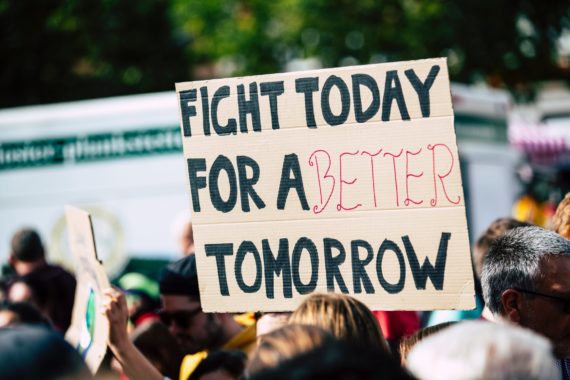“There is a huge portion of our community that doesn’t necessarily want two officers showing up when they call about a situation with respect to behavioral and mental health,” the mayor said in an interview Sunday. “So this is a new path forward for us that has been illuminated because of what we’ve learned during these times. Look, there’s political will; there was not political will to make this huge of a step three weeks ago.”
Albuquerque’s plan for a new branch of public safety comes amid a nationwide movement to slash police department funding after George Floyd’s death in police custody in Minneapolis.
The national protests fueled by racial tensions spilled into the streets of Albuquerque, where black or African American people make up less than 3 percent of the total population, according to the U.S. Census Bureau.
City leaders in Los Angeles and Portland, Ore., have announced steps that would curtail law enforcement spending or diminish the police footprint in their cities. The Minneapolis City Council announced it was prepared to dismantle the police department altogether.
And, like Albuquerque, some cities have put in place measures to disentangle armed law enforcement from substance abuse, mental health or homelessness issues. But the formation of a new public safety department is a new approach, according to Khalil Gibran Muhammad, a professor of history, race and public policy at the Harvard Kennedy School.
“A department of public safety that sends out people who are not committed to sustaining life but are simply committed to not dispensing corporal punishment and arresting people seems to me to be a difference without distinction,” he said.
During his announcement Monday, Keller said this isn’t the first police reform he has implemented. In January, Albuquerque’s municipal grounds security department partially took over public inebriation calls. More than a year ago, the city tasked mobile response teams with connecting the chronically homeless with resources.
In a meeting with his staff early Monday morning, Albuquerque Police Chief Mike Geier said his officers were “relieved” by the news that many of their calls would shift to the new community safety department.
“This is the solution” to overburdened police departments nationwide, Geier told The Post. He said he’s tired of his officers saying, “There’s nothing we can do.”
“There’s always something somebody can do,” the chief said.
Keller’s announcement of the new department comes as the police department for the Southwestern city of more than half a million faces federal oversight because of its problematic history with use of force.
Since 2014, a federal monitor has reviewed Albuquerque police operations after the city reached a settlement agreement with the Department of Justice. A DOJ investigation the year prior revealed “a culture of aggression” that had resulted in rough arrests, dozens of police-involved shootings and costly lawsuits.
There have been at least 36 officer-involved shootings in Albuquerque since 2015, according to media reports and The Post’s officer-involved shooting database.
In its latest report last month, the Justice Department-appointed independent monitor found examples of command-level personnel who attempted to delay oversight processes until after remedial measures had expired and others who remain resolutely “counter-CASA,” or court-approved settlement agreement. The monitor, James Ginger, said that those individuals are beginning to face pressure from others in the department, but “this pressure is neither uniform nor persistent,” he wrote.
City staff will review the budgets for departments including the police to find “tens of millions of dollars” to fund the new agency, Chief Administrative Officer Sarita Nair told The Post in an interview Sunday. Funding won’t be taken from “core police work,” the city said. The financial footprint of the police will be lessened gradually with this change.
Albuquerque spends more than $300 million on public safety, two-thirds of which makes up police department funding. Nair said the city has already identified about 10 percent of that budget that is devoted to nonenforcement activities.
Shaun Willoughby, the president of Albuquerque Police Officers’ Association, said the police officers’ union doesn’t support taking funds from the police department, as it is already underfunded due to the novel coronavirus pandemic and costly federal oversight. The department has a shortage of about 400 officers.
“This isn’t the agency to take from,” Willoughby said of the police budget. “We can’t rob Peter to pay Paul. I know it’s a popular focal point but police departments across the country have been underfunded for years.”
But the American Civil Liberties Union of New Mexico, which has increasingly put pressure on Albuquerque city leaders to institute stricter police reforms in the wake of the DOJ investigation, says that budgetary changes are also necessary. Last week, ACLU director Peter Simonson told local news station KOAT 7 that defunding the police means reprioritizing and reallocating resources to unarmed professionals.
Barron Jones, the ACLU-New Mexico policy strategist, told The Post that success in Albuquerque looks like a police department that no longer escalates conflict, bringing armed officers to mental health crises or minor substance abuse violations.
A black man who was formerly incarcerated, Jones said he has been on the receiving end of APD violence himself.




